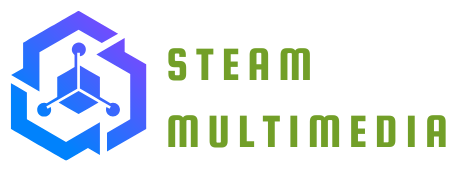Table of Contents
ToggleIn a world where marketing strategies evolve faster than a cat meme goes viral, having the right martech tools can make all the difference. These digital superheroes swoop in to save the day, helping marketers streamline processes, analyze data, and engage customers like never before. Who wouldn’t want a trusty sidekick that does the heavy lifting while they focus on crafting that perfect campaign?
Overview of Martech Tools
Martech tools serve as vital resources for marketers navigating today’s digital landscape. These tools enhance operational efficiency, allowing professionals to automate tasks and focus on strategy. Various categories encompass martech solutions, including analytics, customer relationship management (CRM), content management systems (CMS), and social media management.
Analytics tools provide insights into customer behavior and campaign performance. Google Analytics and Adobe Analytics rank among the most widely used platforms, offering detailed metrics that help marketers make informed decisions. CRM systems like Salesforce and HubSpot centralize customer data, facilitating targeted communication and personalized experiences.
Content management systems enable brands to create and manage digital content efficiently. WordPress and Drupal are popular choices, empowering marketers to deliver compelling content across multiple channels. Social media management tools, such as Hootsuite and Buffer, streamline posting and interaction across various platforms, ensuring consistent brand messaging.
Email marketing platforms like Mailchimp and Constant Contact help marketers design and send campaigns. These tools offer segmentation features, ensuring personalized content reaches the right audience. Marketing automation tools further advance campaigns by automating processes such as lead nurturing, with options like Marketo and Eloqua being industry leaders.
Choosing the right martech tools requires analyzing specific business needs and goals. Prioritizing features such as scalability, user-friendliness, and integration capabilities can maximize potential benefits. With the right combination of tools, businesses can drive engagement, improve customer loyalty, and achieve comprehensive marketing success.
Criteria for Selecting Best Martech Tools
Selecting the best martech tools requires careful consideration of specific criteria. Factors like user-friendliness and integration capabilities play crucial roles in determining the right fit for a business.
User-Friendliness
User-friendliness ranks high among critical selection criteria. Tools with intuitive interfaces reduce the learning curve for users, enabling quicker adoption. Simplified navigation enhances daily operations, ensuring team members focus on tasks rather than struggling with complex software. Ease of access to support and comprehensive training resources contribute significantly to overall usability. A proactive approach to user feedback often leads to continuous improvements, benefiting organizations over time.
Integration Capabilities
Integration capabilities represent another essential aspect when selecting martech tools. Seamless compatibility with existing systems facilitates data flow across platforms, reducing manual entry and errors. Tools that support popular APIs enable easy integration with other marketing software. Improved interoperability leads to better teamwork and more cohesive marketing strategies. Additionally, an integrated tech stack provides marketers with richer data insights, allowing for more informed decision-making. Evaluating these capabilities ensures organizations leverage the full potential of their martech investments.
Top Martech Tools for 2023
Martech tools play a crucial role in transforming marketing strategies in 2023. These tools enhance operational efficiency and empower marketers to respond effectively to changing dynamics.
Tool 1: Google Analytics
Google Analytics offers comprehensive insights into website performance and user behavior. It tracks user interactions, monitors traffic sources, and analyzes conversion rates. Marketers leverage real-time data to optimize campaigns and improve user experience. Customizable dashboards enable users to focus on key metrics. With its integration capabilities, Google Analytics connects seamlessly with various advertising platforms, enhancing data analysis.
Tool 2: HubSpot
HubSpot excels in providing a complete CRM solution for inbound marketing. The platform unifies data from multiple sources, improving targeted communication. Users benefit from automation tools that streamline email marketing, social media posting, and content management. An intuitive user interface simplifies navigation, enabling marketers to manage tasks efficiently. HubSpot also offers analytics features to track campaign performance and ROI, making it a powerful asset for businesses.
Tool 3: Mailchimp
Mailchimp serves as a leading email marketing platform designed for businesses of all sizes. Its user-friendly interface allows marketers to create tailored email campaigns effortlessly. Data-driven insights help refine strategies and reach targeted audiences. Automation features allow for personalized messaging based on user behavior and preferences. Additionally, Mailchimp integrates with numerous platforms, ensuring a smooth marketing experience across various channels.
Emerging Trends in Martech
AI-powered tools revolutionize the martech landscape, enabling personalized marketing experiences and predictive analytics. Marketers leverage artificial intelligence to analyze consumer data, providing actionable insights that shape strategies. Real-time data processing enhances decision-making, ensuring campaigns resonate with target audiences.
Customer experience optimization stands as a crucial focus. Organizations prioritize creating seamless interactions across multiple touchpoints, using advanced tools to ensure consistency. Behavioral analytics software monitors user actions, allowing businesses to adapt and refine customer journeys dynamically.
Integration of marketing and sales teams becomes paramount. Unified platforms that streamline collaboration facilitate improved communication, breaking down silos. Solutions consolidating CRM and marketing automation enable efficient lead management, enhancing overall performance.
Privacy-focused marketing tools emerge in response to increased data protection regulations. Solutions that prioritize user consent and transparent data handling foster trust while maintaining compliance. These tools help marketers balance personalization with consumer privacy, reinforcing brand integrity.
Finally, voice search optimization tools gain traction, reflecting changing consumer behaviors. With the rise of smart speakers and voice assistants, businesses adapt their strategies to capture voice searches effectively. Marketers employ SEO tactics tailored for voice queries, enhancing visibility in an increasingly competitive digital landscape.
Selecting the right martech tools is crucial for marketers aiming to thrive in today’s competitive landscape. With the right solutions in place, businesses can streamline their processes and enhance customer interactions. Embracing tools that align with specific needs not only boosts operational efficiency but also fosters innovation in marketing strategies.
As the industry evolves, staying informed about emerging trends and technologies is essential. Marketers should continually assess their toolkits to ensure they leverage the best resources available. This proactive approach will empower them to create impactful campaigns that resonate with their target audiences and drive sustained growth.




